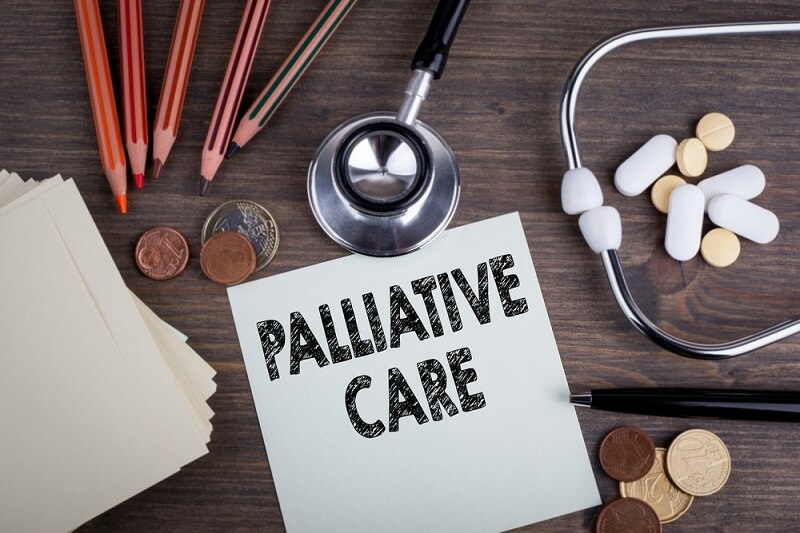Navigating Compassion: Exploring Stages of Palliative Care

Facing a severe illness or chronic condition comes with overwhelming and complex emotions and decisions that need to be attended to. Palliative care is a specialized approach that focuses on improving the life of patients and their families in difficult times. It's about managing symptoms, addressing emotional and spiritual needs, and providing support throughout the journey. Lets understand how it works through these stages explained.
What Is Palliative Care?
Palliative care is a holistic approach to healthcare that aims to enhance the quality of life for individuals facing life-threatening illnesses or chronic conditions. Unlike hospice care, which focuses on end-of-life care, palliative care can begin at any stage of disease and be provided alongside curative treatments. The primary focus of palliative care is to alleviate pain and suffering, both physical and emotional, and to enhance the overall well-being of patients.
Goals Of Palliative Care

- Pain and Symptom Management: Palliative care specialists work to alleviate physical discomfort and manage symptoms such as pain, shortness of breath, nausea, and fatigue.
- Enhancing Quality of Life: Palliative care aims to improve the patient's well-being by addressing emotional, psychological, and spiritual needs.
- Providing Support: It supports patients and their families as they cater to the complexities of illness, treatment options, and end-of-life decisions.
- Open Communication: Palliative care encourages open and honest communication between patients, families, and healthcare providers to ensure patient preferences and goals are respected.
The Palliative Care Team
- Doctors: Palliative care doctors are skilled in pain management and symptom control. They work closely with other healthcare providers to coordinate care.
- Nurses: Palliative care nurses provide hands-on care, administer medications, and emotionally support patients and families.
- Social Workers: They assist with practical matters like accessing resources, counseling, and helping patients and families navigate the emotional challenges of illness.
- Chaplains: Spiritual care providers offer support for patients and families, respecting their individual beliefs and providing comfort during difficult times.
- Pharmacists: Palliative care pharmacists specialize in medications, ensuring the right drugs are prescribed to manage symptoms and control pain.
Stage 1: Developing & Implementing the Care Plan

The journey into palliative care begins with developing a personalized care plan. This plan outlines the patient's treatment goals and preferences. The palliative care team evaluates the patient's condition and collaborates to design a care plan specified to their needs and desires.
Patients and their families are crucial in communicating their wishes and concerns during this phase. The care plan comprises medication management, pain control strategies, and therapies to enhance the patient's comfort and well-being through vitamin supplements, routine checkups and much more. The team closely monitors the patient's progress and adjusts the care plan.
Stage 2: Adjusting the Care Plan and preparing Emotionally
As the illness progresses, the care plan may need adjustments. Patients and families must adapt to changes in their health and treatment strategies. This stage can be emotionally challenging as patients and families grapple with uncertainty and shifting expectations.
Adjusting the care plan involves addressing new symptoms and considering different treatment options. For example, a patient with cancer might experience side effects from chemotherapy that require modification of their medication regimen. Emotionally, patients and families may experience grief, anxiety, and fear as they confront the evolving reality of the illness.
Stage 3: Shifting to End-of-Life Care
For some patients, palliative care transitions into end-of-life care as the condition worsens. The focus shifts to maximizing comfort and providing emotional support. Patients may discontinue aggressive treatments and focus on the quality of their remaining time.
End-of-life care embraces the principles of hospice care, emphasizing keeping patients pain-free and ensuring their dignity. The palliative care team continues to provide physical and emotional support, and patients and families may begin to explore advanced care directives and end-of-life decisions.
Patients and families must have open and honest discussions with the palliative care team about their wishes, spiritual beliefs, and how they envision their final days. These conversations help the team develop a compassionate and personalized end-of-life care plan.
Stage 4: Symptom Management, Emotional & Spiritual Care
The palliative care team works diligently to ensure patients are comfortable. Patients may experience various physical symptoms, such as pain, shortness of breath, fatigue, and nausea. Skillful medication management and therapies are crucial in alleviating these symptoms and improving the patient's overall quality of life.
Emotional and spiritual care becomes increasingly vital as patients and families confront the profound impact of the illness. Patients may experience fear, anxiety, depression, and grief. The palliative care team provides counseling and support to address these emotional challenges.
Spiritual care providers, such as chaplains, are available to offer spiritual guidance and comfort, respecting the individual beliefs and values of patients and their families.
Stage 5: Support for Family Members, Loved Ones & Carers
Palliative care extends beyond the patient to encompass the well-being of family members and caregivers. They often face emotional and practical challenges and require support and guidance. The palliative care team recognizes the importance of supporting the entire family unit.
- Emotional Support: Family members may experience various emotions, including grief, guilt, and anxiety. Counseling and support groups can help them navigate these complex feelings.
- Practical Assistance: Palliative care teams can connect families with resources and services to help with caregiving, financial matters, and logistical arrangements.
- Education: Families often benefit from information about the patient's condition, treatment options, and what to expect in the coming days or weeks. Knowledge empowers them to make informed decisions and provide the best possible care.
- Respite Care: Caring for a loved one with a severe illness can be physically and emotionally exhausting. Respite care services offer family caregivers a break to rest and recharge.
- Bereavement Support: After the patient's passing, the palliative care team can provide bereavement support to help family members cope with their loss.
Conclusion
If you or a loved one are facing a severe illness, consider exploring palliative care to ensure the best possible quality of life during this difficult time. The palliative care stages emphasize the importance of communication, personalized care plans, and holistic support to guide patients and their families through each journey step, promoting comfort, dignity, and well-being.
FAQs about Palliative Care
Is palliative care only for cancer patients?
No, palliative care is suitable for individuals with a wide range of serious illnesses, not limited to cancer. It can benefit those with heart disease, respiratory conditions, neurological disorders, and more.
Does receiving palliative care mean giving up on a cure?
Not at all. Palliative care can be provided alongside curative treatments. It focuses on improving the patient's quality of life, regardless of the disease's durability.
Is palliative care only for older adults?
No, palliative care is suitable for people of all ages. Pediatric palliative care is designed explicitly for children facing serious illnesses.
Is palliative care the same as hospice care?
While palliative and hospice care focuses on enhancing the quality of life for patients with serious illnesses, there are key differences. Palliative care can begin at any stage of the disease and can be provided alongside curative treatments. Hospice care, on the other hand, is typically offered when a patient is no longer pursuing curative treatments and has a life expectancy of six months or less.
This content was created by AI
-1717753922-r.jpg)